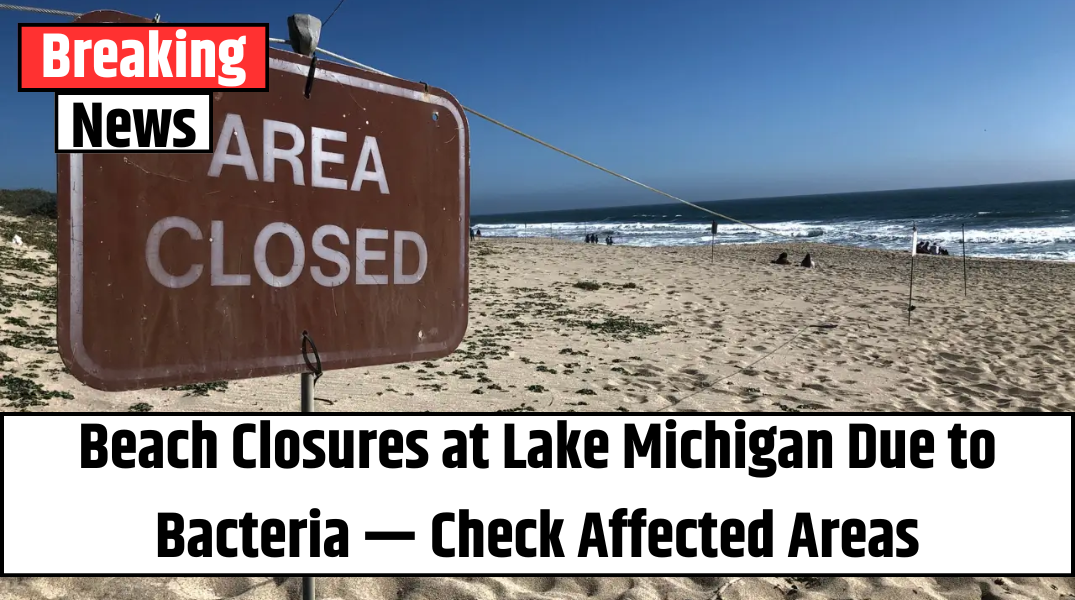Michigan residents hoping to cool off at the beach this Independence Day weekend may need to change their plans. State environmental officials have flagged seven public beaches as unsafe for swimming after detecting elevated levels of E. coli bacteria in water samples.
The Michigan Department of Environment, Great Lakes, and Energy (EGLE) issued a mix of closures and contamination advisories on Thursday, July 3, warning that the bacteria could cause illness. The announcement was first reported by the Detroit Free Press.
According to the agency, the following beaches have been impacted:
-
Orchard Lake Country Club Beach (Oakland County) – Closed due to runoff from recent storms.
-
Maple Beach at Kensington Metropark (Oakland County) – Closed; cause of contamination remains unidentified.
-
Handsome Lake Crossroads for Youth Beach (Oakland County) – Closed; contamination source unknown.
-
Elm Point Beach, Lake Charlevoix (Charlevoix County) – Advisory issued; source of contamination undetermined.
-
Gun Lake County Park Beach (Allegan County) – Advisory in place due to stormwater runoff.
-
Lake St. Clair Memorial Park Beach (Macomb County) – Advisory; contamination source not yet identified.
-
Sunset Beach, West Grand Traverse Bay (Grand Traverse County) – Advisory issued; source remains unknown.
Also Read – U.S. Army Corps of Engineers Announces Temporary Closure of Harlan Lake Beach
Local health departments perform regular testing to ensure Michigan’s beaches meet public health standards. A beach is considered safe if E. coli levels are below 300 colony-forming units per 100 milliliters of water. When levels exceed this threshold, the risk of gastrointestinal illness and skin infections rises—especially for young children, the elderly, and immunocompromised individuals.
While E. coli is a type of coliform bacteria that naturally exists in the environment and in the intestines of humans and animals, its presence in water can signal fecal contamination. According to the U.S. Environmental Protection Agency (EPA), these bacteria act as a warning sign that more harmful pathogens may be present.
The source of contamination can vary—ranging from stormwater runoff and septic system leaks to waste from birds, pets, or livestock. Heavy rains, in particular, can wash bacteria from surrounding areas into lakes and rivers.
Exposure to high levels of E. coli in water can lead to symptoms like diarrhea, vomiting, fever, and abdominal cramps. Health officials recommend avoiding any contact with affected water and seeking medical attention if symptoms occur after swimming.
Also Read – MSU Researchers Analyze Climate Change Impact on 24,000 U.S. Lakes Using Open Data
Beachgoers are advised to check with local county websites or EGLE’s beach monitoring page for up-to-date information on closures and advisories before heading out. As Michigan continues to deal with the effects of extreme weather and climate-related water quality issues, staying informed can help ensure a safe and enjoyable holiday weekend.












